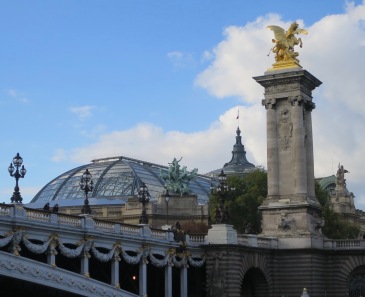You won’t find that little phrase in the psalms: but poetic imagery is there in spades. Part of the fascination of the psalter is the special place in our lives of poetry set to music. As noted previously, the synergy of music and word is somehow magical — a classic case of the sum being greater than the parts.
A second attraction is that through the ages they have been widely accepted across cultures and different faiths as a broadly inspirational heritage.
Anoher Bard
That can be said of the works of William Shakespeare, of course, from whom the title phrase is culled:
The cloud-capp’d towers, the gorgeous palaces,
The solemn temples, the great globe itself,
Yea all which it inherit, shall dissolve
And, like this insubstantial pageant faded,
Leave not a rack behind. We are such stuff
As dreams are made on, and our little life
Is rounded with a sleep. — The Tempest, act iv, sc. 1.

Remembrance
This text was used in 1951 by Ralph Vaughn-Williams in his Three Shakespearian Songs. This one comes to our attention, if you have read this far, through the late Andrew Sayers, artist and former curator and director in galleries. This piece was chosen (by him) for inclusion in his memorial service this Sunday afternoon 6 December 2015 at the National Portrait Gallery in Canberra, of which he was the inaugural director (more …). The Oriana Chorale directed by Peter Young will offer this lovely piece for the occasion.
Interestingly, this text has been excised from the middle of a longer ramble late in The Tempest, about visions and spirits dissolving and resolving with the trajectory of the tale. Context is important. Drop these lines with music into a time of commemoration or reflection and the moment assumes a new more universal and powerful atmosphere.
In this case, the song may be more existential than inspirational: but we can do with more moments of feeling the unity of humankind. Sometimes it’s in times of sadness, but remembrance is also thankful for our ‘little life rounded by a sleep’; for the power of poetry with music; for artistry, imagination and grace. These are the reasons why we sing the psalms. Here’s one of many versions on YouTube of this poignant reflection:
